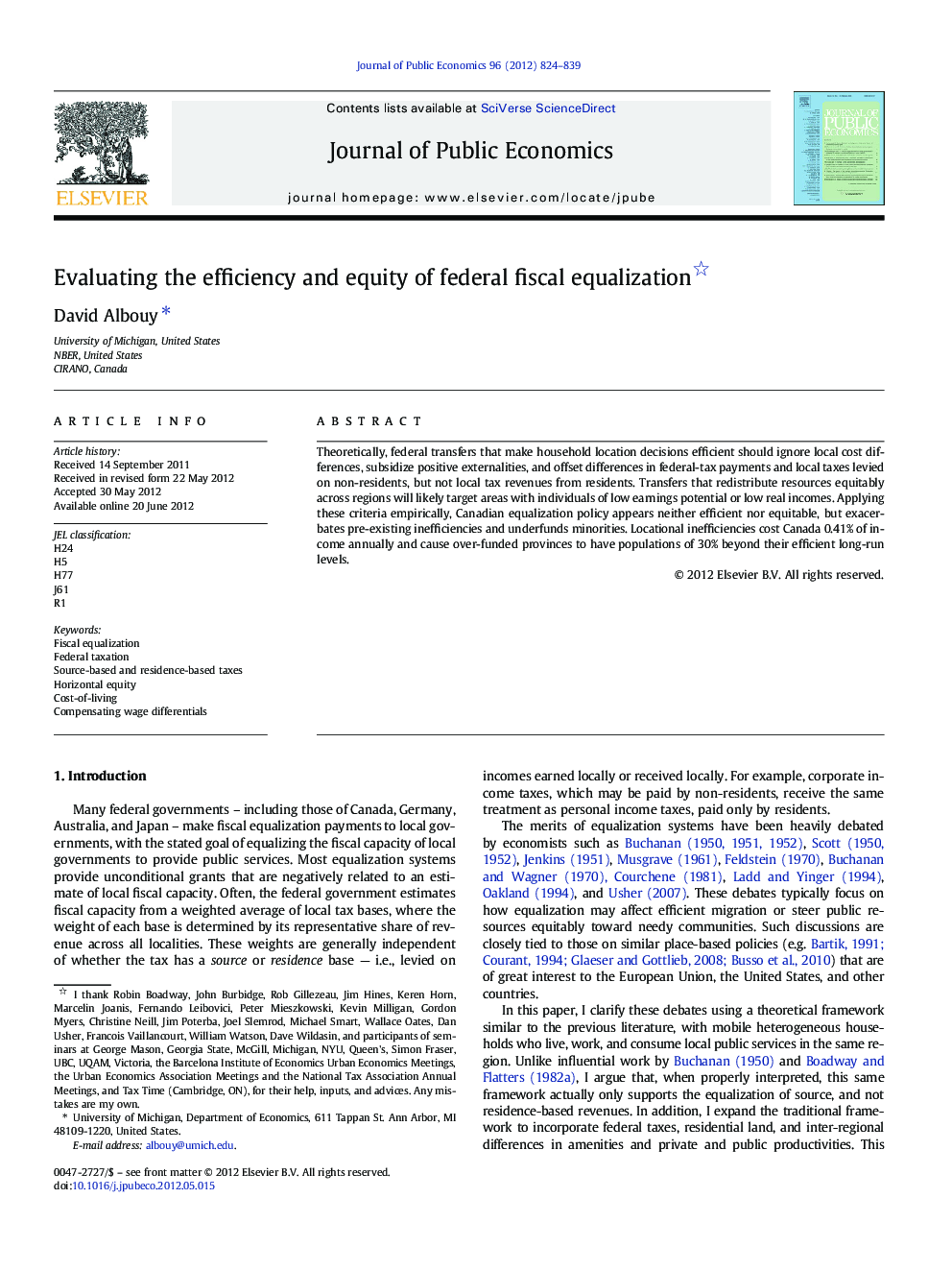| Article ID | Journal | Published Year | Pages | File Type |
|---|---|---|---|---|
| 968970 | Journal of Public Economics | 2012 | 16 Pages |
Theoretically, federal transfers that make household location decisions efficient should ignore local cost differences, subsidize positive externalities, and offset differences in federal-tax payments and local taxes levied on non-residents, but not local tax revenues from residents. Transfers that redistribute resources equitably across regions will likely target areas with individuals of low earnings potential or low real incomes. Applying these criteria empirically, Canadian equalization policy appears neither efficient nor equitable, but exacerbates pre-existing inefficiencies and underfunds minorities. Locational inefficiencies cost Canada 0.41% of income annually and cause over-funded provinces to have populations of 30% beyond their efficient long-run levels.
► It is efficient to equalize local source, but not residence‐based tax revenues. ► It is efficient to equalize federal‐tax payment differences due to location effects. ► It is sensible for equity criteria to consider real or potential, not nominal, income. ► Canadian transfer policy lowers the efficiency of household location decisions. ► Plausible equity‐based criteria do not appear to explain Canadian transfer policy.
